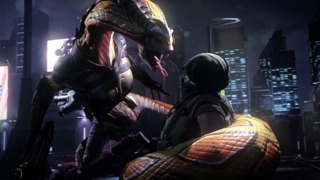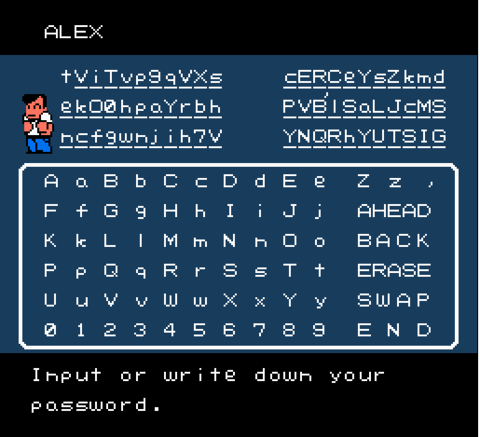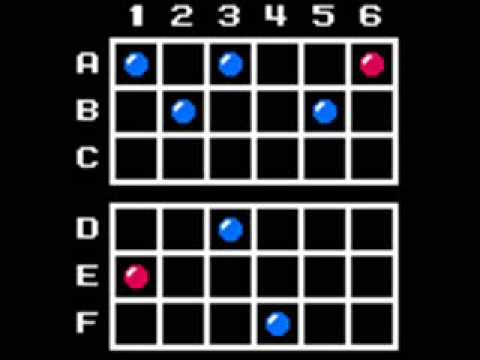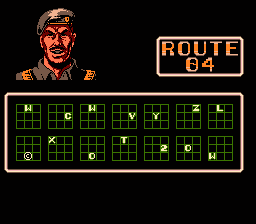Saved games are kind of like officiating: the subject most often comes up when something has gone wrong. I had been playing Rebel Galaxy for about twenty hours when my save was corrupted. Apparently, a bug has existed for a long time with the game that several patches still hasn’t squashed. This bug results in mission cargo getting stuck in your hold, which also results in you being unable to complete certain mission types. The Vanishing of Ethan Carter also had a rather annoying autosave feature. There wasn’t anything drastically wrong with it, but there was a point where the game went a healthy forty-five minutes for me without saving due to when and where it would save. These two games got me thinking a lot about the subject of saved games.

Even though saved games aren’t a particularly sexy game mechanic to discuss, the evolutionary history of them is certainly interesting. Every person who played console games during the cartridge era likely has a story about losing a saved game. Back then, games like The Legend of Zelda and Final Fantasy used save batteries. According to DK Oldies, there are just over fifty games that used save batteries. There really wasn’t much to what these early games could do with saving. There was only enough room to allow for typically one to three saves after all. Other games used some form of password system in lieu of saved games. Despite how annoying those passwords could get, pen and paper were often more reliable than say my Final Fantasy cartridge ever proved to be.
Computer games on the other hand had access to disks they could write to. Either they could write to a floppy disk, or later they had access to hard drives. For the most part, these games employed manual save systems. The only limitation for the most part, unless a certain amount of save slots was designated, was how much free space you had access to. The only games that tended to buck the trend were Roguelikes, which were the domain of crazy people. Okay, so they weren’t actually crazy.
Rogue, Hack, and the rest in this genre followed core design philosophies that saved games were only meant for suspension of play. The idea was that if you could easily return to some form of recent checkpoint, it removed a great deal of tension from the game. This contrarian saved game philosophy perhaps more than anything else gave birth to the numerous variants in saved game designs ever since.
One of the most noteworthy games I can recall that was stuck in the middle of this debate was Alien Versus Predator which was released on PC in 1999 to a mixed reaction. While most elements of the game were praised, the game featured a fairly atypical design decision: there was no in-level save feature. The developers wanted to create a sense of tension around every corner with their game to mimic the Alien movies. If you could simply reload to a checkpoint or save point from a few moments earlier, they argued it would remove that tension.
Opinions on this decision were needlessly to say sharply divided. While today that might seem weird given the mainstream acceptance of alternative save mechanics, this was one of the earliest examples of a higher-profile game following a design philosophy similar to Roguelikes. The backlash toward this decision was sufficient enough that when the Gold Edition of the game was released a year later, the developers added in a saved game function.
The impact of the Rogue like saved game philosophy can be seen in countless modern games. Games like Dark Souls offer a singular game save per character which is automatically updated on a consistent basis. Games like Crypt of the Necrodancer, Spelunky, and Rogue Legacy have come up with new twists on how to follow the core tenants of Roguelike saves while still offering an ability to maintain progress between deaths. Many games feature hardcore modes which enforce Roguelike save mechanics on the player. Save functionality has over time become a key element of gameplay design rather than simply a means of tracking progress.
At some point though, autosaves in lieu of manual saves became an “in-thing” with games that didn’t really take advantage of it. My memory tells me this coincided with the advent of hard drives on gaming consoles. Figuring out the history of this is a little out of the scope of this blog post. While games often had and still do to this day have an autosave file while also allowing the player to manually save the game, some started to see autosaves as sufficient.
While this manner of checkpoint system offered a great deal of convenience, the player implicitly trusts the developer on two key points: checkpoints are sufficiently frequent, and saved games are stable. With access to manual saves, if one saved game is corrupted, an earlier one is typically available to the player to restore. With autosaves, well, you get my situation with Rebel Galaxy. Infrequent checkpoints are perhaps the more common issue. Alien: Isolation (what is it with save systems in Alien games?) is perhaps the game that most recently found itself the subject of this complaint. Many players complained about losing over half an hour of progress at various points.

It is not as if unlimited saving doesn’t have its own issues. Fire Emblem Fates and XCom 2 are both recent strategy games for which unlimited saving mid-mission can compromise the experience. Most players have heard of the term “save scumming,” the practice of loading an earlier save to undo a result the player didn’t like. While almost any genre can be impacted by this, the strategy genre might be impacted the greatest by this practice outside of Roguelikes, but those typically require actively manipulating files. This is even more applicable to games like XCom 2 and Fire Emblem which feature permanent death (though in Fire Emblem, this is only true on Classic mode). Part of the thrill of these games for many players is that any character can die at any turn.
While it’s easy enough to dismiss players engaging in save scumming as refusing to play a game properly, it isn’t always necessarily the case that the game is optimally designed around save limitations. For instance, XCom is fairly rigorously balanced around the ebb and flow of combat and losses. Units have fewer experience levels. They top out at a certain point. Replacement units are available at a reasonable cost, and can immediately use leveled equipment.
Fire Emblem on the other hand is much more rooted in the RPG genre. Units range from levels one through twenty and also can be promoted to advanced classes. Losing too many units early on starts to lock you out of child units (in recent titles) available later in the game, which become your primary means of resupplying your ranks at some point. There are some methods of getting around this mind you, but let’s leave that aside for a moment as this is not really meant to be me railing against Fire Emblem, which is a series I like a lot. Fire Emblem has less of an ebb and flow to this and more has a brick wall you tend to hit if you lose too many units along the way. For years, many complained about the series’ permanent death mechanic. This resulted in Casual mode being introduced in Fire Emblem: Awakening. In Casual mode, units are not permanently lost, but rather are lost for the rest of the battle.
After playing both Awakening and Fates, I’m not sure the developers have figured out how to balance these two different options yet. Short of playing on Lunatic, there are few times in the game you’re in danger of your entire party wiping in one battle on Casual. And are Casual players looking for an easier game, or are they just not a fan of the permanent death mechanic? It’s interesting to step back and realize much of this is rooted back in how the saved game functionality of Fire Emblem works.
After writing this, I still have no good answer as to why both Rebel Galaxy and Ethan Carter only offer autosave functionality. Unlike many examples referenced here, neither game utilizes save functionality that impacts gameplay. I will likely always be in the camp that thinks games should default to allowing manual saving unless there is a design mechanic justifying an alternative. For all the convenience of autosaves, there are just too many examples of something going wrong for my liking. Maybe I’ve just never gotten over losing my Final Fantasy save so many damn times.




Log in to comment